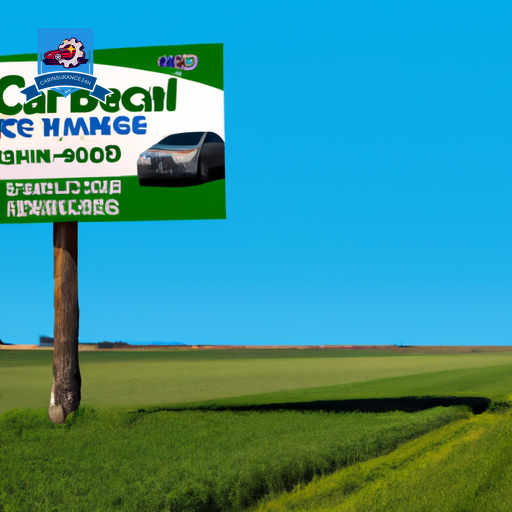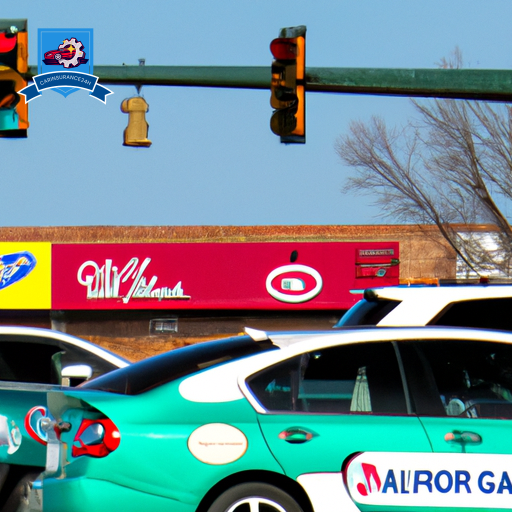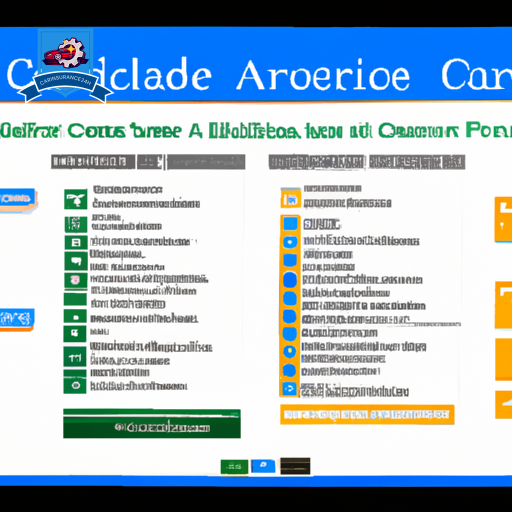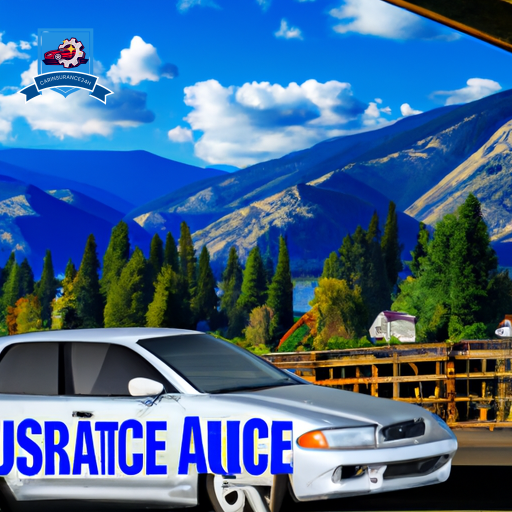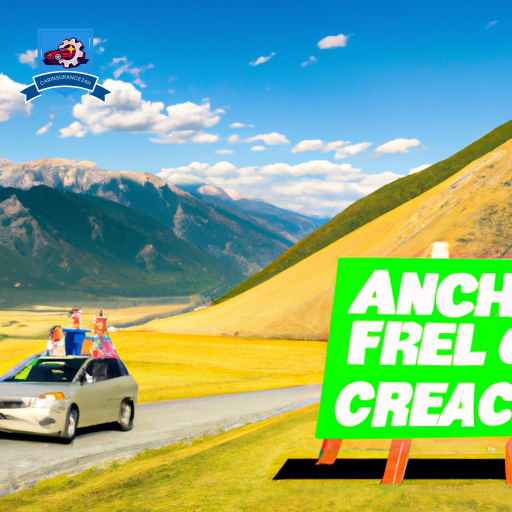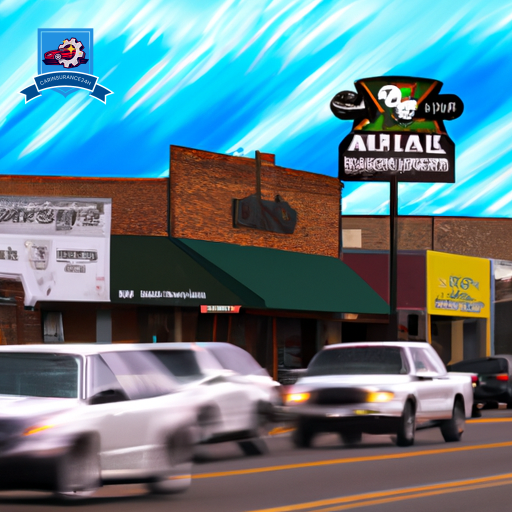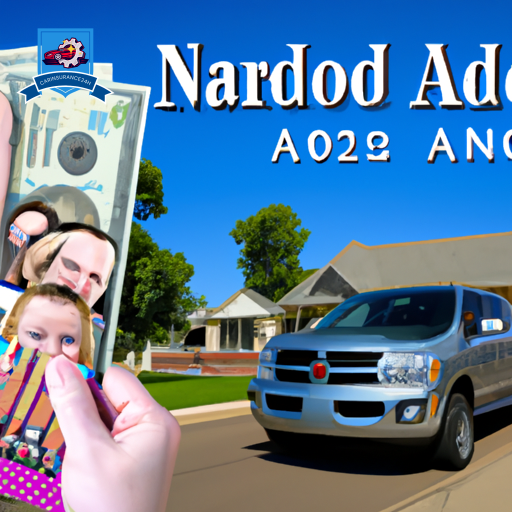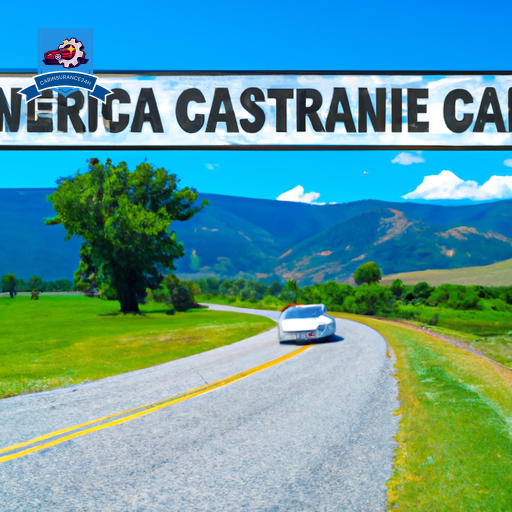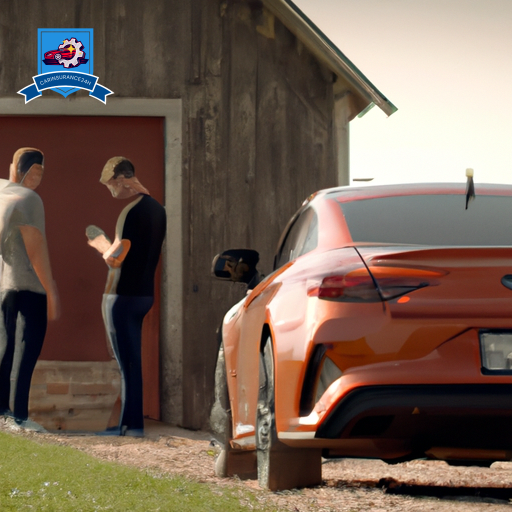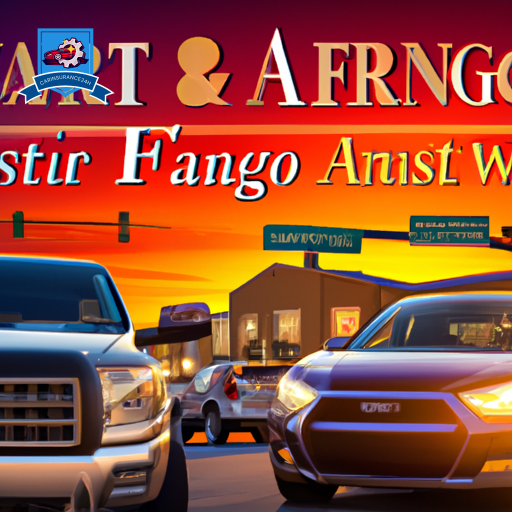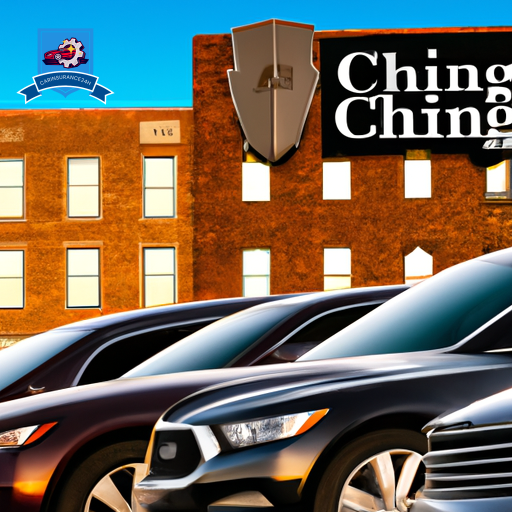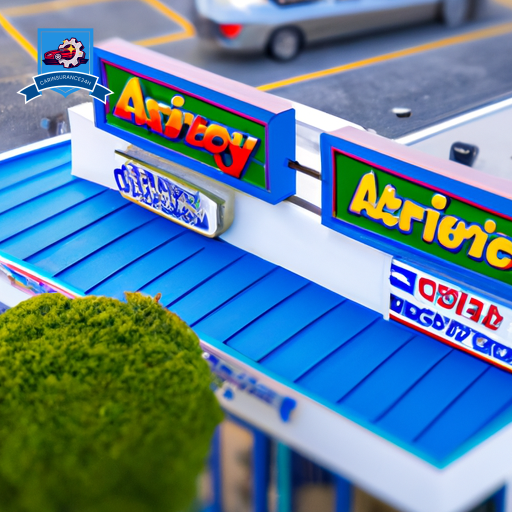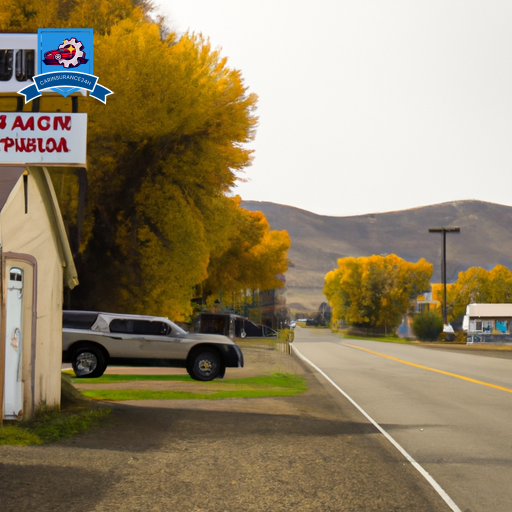Navigating the world of auto insurance in North Carolina can be a complex endeavor. From understanding the mandatory insurance requirements to exploring various coverage options and the factors influencing premium rates, there is much to consider. With topics ranging from liability coverage to the importance of uninsured motorist protection, rental car reimbursement, and discounts, the landscape of auto insurance in North Carolina is multifaceted. As drivers strive to secure adequate coverage, knowing how to file a claim in this state becomes a crucial aspect of their insurance knowledge.
Mandatory Auto Insurance Requirements
In North Carolina, adherence to mandatory auto insurance requirements is essential for all vehicle owners to ensure financial protection in the event of an accident. The state law mandates that all drivers carry a minimum amount of auto insurance to cover potential damages and injuries resulting from a car accident. Failure to meet these minimum requirements can have severe legal implications, including fines, license suspension, and potential civil lawsuits in case of an accident.
The minimum auto insurance requirements in North Carolina include liability coverage for bodily injury and property damage. Drivers must have at least $30,000 in bodily injury coverage per person, $60,000 in bodily injury coverage per accident, and $25,000 in property damage coverage. This liability insurance helps cover the medical expenses, lost wages, and property repair costs of the other party in an accident where the insured driver is at fault.
It is crucial for vehicle owners to understand these minimum requirements and ensure that they have the necessary coverage to comply with the law. Failing to maintain the mandated auto insurance coverage not only puts the driver at risk of legal consequences but also jeopardizes their financial security in case of an accident. By meeting the minimum requirements, drivers in North Carolina can drive legally and protect themselves and others on the road.
Different Types of Coverage Options
When it comes to auto insurance in North Carolina, understanding coverage limits is crucial for drivers. Additionally, being aware of the optional add-ons available can provide extra protection tailored to individual needs. It is also essential to take note of any policy exclusions that may apply to avoid any surprises in the future.
Coverage Limits Explained
Understanding the various types of coverage options available is essential for comprehending the intricacies of auto insurance in North Carolina. When it comes to coverage limits, policyholders must carefully consider their needs and responsibilities. Here are some key points to keep in mind:
- Coverage Limits Comparison: Policyholders should compare different coverage limits to ensure they have adequate protection in case of an accident.
- Liability Coverage: This type of coverage helps pay for the other party’s expenses if the policyholder is at fault in an accident.
- Uninsured Motorist Coverage: This coverage protects the policyholder if they are in an accident with a driver who doesn’t have insurance.
- Underinsured Motorist Coverage: Similar to uninsured motorist coverage, this option helps when the at-fault driver’s insurance is insufficient to cover all damages.
Optional Add-Ons Available
Exploring additional coverage options beyond the basic policy can enhance the level of protection offered by auto insurance in North Carolina. Two valuable optional add-ons available to consider are:
| Coverage Type | Description |
|---|---|
| Roadside Assistance | Provides services such as towing, tire changes, and fuel delivery in emergencies. |
| Custom Equipment | Covers the cost of specialized equipment or modifications made to the vehicle. |
Adding roadside assistance coverage ensures help is just a phone call away during unexpected breakdowns, while custom equipment coverage safeguards investments in vehicle modifications. These options offer peace of mind and tailored protection, addressing specific needs that basic policies may not cover.
Policy Exclusions to Note
Policy exclusions in different types of coverage options play a crucial role in understanding the limitations of auto insurance in North Carolina. It is essential to be aware of the exclusions explained and common misconceptions surrounding them to make informed decisions. Policy limitations and coverage restrictions can vary between different types of coverage options, impacting the extent of protection provided. Some exclusions may include intentional acts, racing, or using the vehicle for hire. Understanding these exclusions is vital to avoid any surprises during the claims process and ensure adequate coverage. Being knowledgeable about policy exclusions can help policyholders assess their needs accurately and choose the most suitable coverage options for their individual circumstances.
- Intentional acts are typically not covered.
- Racing activities may not be covered.
- Using the vehicle for hire could lead to coverage restrictions.
- Some policies may exclude coverage for certain high-risk behaviors.
Factors Affecting Auto Insurance Rates
Several key factors play a significant role in determining auto insurance rates in North Carolina. One of the primary factors is the impact of the driver’s record on the premium. Drivers with a history of accidents or traffic violations are considered higher risk, leading to increased insurance rates. On the other hand, a clean driving record can result in lower premiums as it indicates a lower risk of future claims.
The age of the vehicle is another crucial element that insurers consider when calculating auto insurance rates. Newer vehicles generally have higher replacement costs and may require more expensive repairs, leading to higher premiums. In contrast, older vehicles may have lower premiums due to their decreased value and potentially lower repair costs.
Additionally, the location where the insured vehicle is primarily kept also influences insurance rates. Urban areas with higher traffic congestion and crime rates may have higher premiums compared to rural areas with lower incidences of accidents and theft. Insurers take into account the likelihood of claims based on the area’s characteristics when determining the cost of coverage.
Understanding Liability Coverage
The concept of liability coverage in auto insurance is essential for understanding how policyholders are financially protected in the event of an accident. This type of coverage helps pay for the other party’s expenses if you are found at fault in a car accident, including medical bills, property damage, and legal fees. When considering liability coverage, it is crucial to understand the following key points:
-
Coverage Exclusions to Consider: It’s important to be aware of what liabilities may not be covered by your insurance policy. Common exclusions include intentional damage, driving under the influence, and using your vehicle for commercial purposes without the proper coverage.
-
Liability Limits Clarification: Liability coverage comes with limits that determine the maximum amount your insurance will pay out for a covered claim. These limits are typically split into two parts: bodily injury liability per person and bodily injury liability per accident. Understanding these limits is crucial to ensure you have adequate coverage.
-
Duty to Defend: In liability coverage, the insurance company also has a duty to defend the policyholder in case of a lawsuit arising from the accident. This means the insurer will provide legal representation and cover legal expenses within the policy limits.
-
Umbrella Policies: For individuals seeking additional liability coverage beyond the limits of their standard policy, umbrella insurance can provide extra protection. This type of policy kicks in when the liability limits of your primary policy have been exhausted.
Importance of Uninsured Motorist Coverage
Uninsured motorist coverage is a critical component of auto insurance policies that provides financial protection to policyholders in the event of an accident with a driver who lacks insurance. In North Carolina, where a significant number of drivers may be uninsured, having this coverage is crucial to safeguard against potential financial losses.
When dealing with uninsured motorist coverage, understanding the claim process is essential. In the unfortunate event of an accident with an uninsured driver, policyholders can file a claim with their own insurance company to seek compensation for medical expenses, lost wages, and other damages. This process ensures that individuals are not left bearing the full financial burden of an accident caused by an uninsured driver.
Policyholders in North Carolina have various coverage options when it comes to uninsured motorist coverage. They can choose between uninsured motorist bodily injury coverage, which helps pay for medical expenses resulting from injuries caused by an uninsured driver, and uninsured motorist property damage coverage, which assists in repairing or replacing a vehicle damaged by an uninsured driver. By selecting the appropriate coverage based on their needs, drivers can better protect themselves in the event of an accident with an uninsured motorist.
Comprehensive Coverage Explained
Comprehensive coverage in auto insurance provides protection for damages to your car caused by incidents other than collisions, such as vandalism or falling objects. This type of coverage also safeguards against theft of your vehicle and provides financial assistance in the event of damage caused by natural disasters like hail or floods. Including comprehensive coverage in your auto insurance policy can offer you peace of mind knowing that your car is protected from a variety of potential risks beyond just accidents.
Coverage for Car Damage
Explaining coverage for car damage under an auto insurance policy involves understanding the scope of protection for various types of incidents. When it comes to comprehensive coverage, policyholders are safeguarded against a range of scenarios that can cause damage to their vehicles. Here are some key points to consider:
- Repair Costs: Comprehensive coverage typically helps pay for damages not caused by a collision, such as weather-related damage or vandalism.
- Deductible Options: Policyholders can choose a deductible amount that suits their budget and preferences.
- Insurance Claims: In the event of damage, policyholders need to file a claim with their insurance provider to cover repair costs.
- Repair Shops: Insurers may have a network of approved repair shops where policyholders can get their vehicles fixed.
Protection Against Theft
Protection against theft is a crucial component of comprehensive auto insurance coverage, providing policyholders with financial security in the event of vehicle theft. To mitigate the risk of theft, insurers may encourage theft prevention measures such as parking in secure areas and using anti-theft devices. Insurance fraud related to vehicle theft is a concern, prompting insurers to investigate claims thoroughly. Vehicle tracking technology has become increasingly common, enabling stolen vehicle recovery by tracking the vehicle’s location. In the unfortunate event of theft, comprehensive coverage typically helps cover the cost of replacing the stolen vehicle. Understanding the details of theft coverage in your auto insurance policy can offer peace of mind and ensure you are adequately protected in such situations.
Coverage for Natural Disasters
In the realm of auto insurance, coverage for natural disasters is a critical aspect that provides policyholders with financial protection in the face of unforeseen events. When considering natural disaster coverage options, comprehensive insurance is key to safeguarding your vehicle against various calamities. This coverage typically includes protection from events such as hurricanes, floods, wildfires, and earthquakes. In the unfortunate event of a natural disaster damaging your vehicle, understanding the claim process for natural disasters is essential. It usually involves promptly contacting your insurance provider to report the damage, providing necessary documentation such as photos and repair estimates, and cooperating with the claims adjuster to assess the extent of the loss.
Collision Coverage and Its Benefits
Covering damages resulting from collisions, collision coverage is a valuable component of auto insurance in North Carolina. In the event of a collision, this coverage assists with the repair or replacement of your vehicle.
One of the primary benefits of collision coverage is repair assistance. If your vehicle sustains damage in a collision with another vehicle or object, this coverage helps pay for the cost of repairing your car, ensuring that you can get back on the road promptly. Without collision coverage, you would be responsible for covering these repair expenses out of pocket.
Moreover, collision coverage provides benefits for vehicle replacement. In cases where the cost of repairing the vehicle exceeds its actual cash value, the coverage can help in replacing the car. This is particularly useful in situations where the vehicle is severely damaged and repairing it may not be feasible or cost-effective.
Medical Payments Coverage Details
A crucial aspect of auto insurance in North Carolina is the inclusion of Medical Payments Coverage, which provides financial assistance for medical expenses incurred due to injuries sustained in a car accident. This coverage ensures that individuals involved in a car accident receive the necessary medical treatment without having to worry about the immediate financial burden.
Medical Payments Coverage Details:
- Coverage for Various Medical Expenses: Medical Payments Coverage typically includes reimbursement for a range of medical expenses, such as hospital visits, surgery, X-rays, and rehabilitation costs.
- No-fault Coverage: This coverage applies regardless of who is at fault in the accident, ensuring that individuals receive the necessary medical assistance promptly.
- Simple Claim Process: The claim process for Medical Payments Coverage is usually straightforward, requiring individuals to submit relevant medical bills and documentation to the insurance company.
- Supplemental Coverage: Medical Payments Coverage can serve as a supplement to health insurance, covering costs that may not be included in regular health insurance policies.
With Medical Payments Coverage, individuals can have peace of mind knowing that their medical expenses are taken care of in the event of a car accident, allowing them to focus on their recovery rather than financial concerns.
Personal Injury Protection (PIP) in NC
Personal Injury Protection (PIP) in North Carolina provides coverage for medical expenses and lost wages resulting from a car accident, regardless of fault. Understanding the basics of PIP coverage and knowing the claim process are essential for policyholders to navigate this aspect of auto insurance effectively. By delving into the details of PIP coverage and the steps involved in filing a claim, individuals can make informed decisions about their insurance needs.
PIP Coverage Basics
In North Carolina, drivers have the option to include Personal Injury Protection (PIP) coverage in their auto insurance policies. PIP benefits provide coverage for medical expenses, lost wages, and other related costs resulting from a car accident, regardless of fault. Understanding PIP coverage limits is crucial as it determines the maximum amount an insurance company will pay out for a claim. Here are some key points to consider regarding PIP coverage basics:
- PIP benefits cover medical expenses for the policyholder and passengers.
- PIP coverage limits vary depending on the policy and insurer.
- PIP benefits may also include coverage for essential services like childcare or household chores.
- PIP coverage can help offset expenses not covered by health insurance.
PIP Claim Process
Navigating the Personal Injury Protection (PIP) claim process in North Carolina involves understanding the steps required to access benefits after a car accident. To streamline the process and ensure claim process efficiency, it is essential to follow these steps:
| Steps to Follow | Description |
|---|---|
| 1. Report the Accident | Notify your insurance company promptly after the accident occurs. |
| 2. Seek Medical Treatment | Obtain necessary medical care for any injuries sustained in the accident. |
| 3. File a PIP Claim | Submit a claim with your insurance provider to access PIP coverage benefits. |
| 4. Provide Documentation | Furnish all required documents, such as medical bills, to support your claim. |
Rental Car Reimbursement Coverage
When considering auto insurance in North Carolina, understanding the benefits of Rental Car Reimbursement Coverage can provide valuable peace of mind in the event of an accident or vehicle repair. This coverage offers policyholders the option to receive reimbursement for the cost of renting a vehicle while their own car is being repaired or replaced due to a covered claim. Here are some key points to consider regarding Rental Car Reimbursement Coverage:
-
Rental car reimbursement benefits: This coverage ensures that you have access to a rental vehicle if your car is undergoing repairs after a covered incident, such as an accident. It helps you maintain your daily routines without significant disruptions.
-
Coverage for temporary transportation: Rental Car Reimbursement Coverage can be crucial in situations where your vehicle is inoperable due to a covered claim. It ensures you have a temporary means of transportation until your car is back on the road.
-
Flexibility in vehicle choice: Depending on the policy terms, Rental Car Reimbursement Coverage may offer flexibility in choosing the type of rental vehicle, accommodating your specific needs during the repair period.
-
Cost-effective solution: While renting a car out of pocket can be expensive, having Rental Car Reimbursement Coverage as part of your auto insurance policy can provide a cost-effective solution in times of need.
Having Rental Car Reimbursement Coverage can be a practical addition to your auto insurance policy, offering convenience and financial assistance when unexpected vehicle repairs are necessary.
Towing and Labor Coverage
A valuable addition to your auto insurance policy, Towing and Labor Coverage provides assistance in the event of vehicle breakdowns or roadside emergencies. This coverage ensures that if your car breaks down, you won’t be left stranded on the side of the road. Roadside assistance benefits are a key feature of this coverage, offering services such as jump-starting a dead battery, changing a flat tire, delivering fuel or other fluids, and unlocking your vehicle if you’re locked out. Additionally, emergency towing services are included, allowing you to move your vehicle to a repair shop or another safe location if it cannot be fixed on the spot.
| Roadside Assistance Benefits | Emergency Towing Services |
|---|---|
| Jump-starting a dead battery | Towing to a repair shop |
| Changing a flat tire | Towing to a safe location |
| Delivering fuel/fluids |
Having Towing and Labor Coverage can provide peace of mind knowing that help is just a phone call away, no matter where you are in North Carolina. Whether you encounter a mechanical failure or simply need a tow, this coverage ensures you won’t be left stranded on the roadside.
Discounts and Ways to Save
To maximize the value of your auto insurance policy in North Carolina, exploring various discounts and ways to save can help you secure cost-effective coverage tailored to your needs. Here are some key strategies to consider:
-
Safe Driving: Maintaining a clean driving record is one of the most effective ways to save on your auto insurance premiums. Insurers often offer discounts to policyholders who demonstrate safe driving habits over an extended period. By avoiding accidents and traffic violations, you can qualify for lower rates and potentially reduce your overall insurance costs.
-
Multi Policy Discounts: Bundling your auto insurance with other policies, such as homeowners or renters insurance, can lead to significant savings. Many insurance companies provide discounts to customers who purchase multiple policies from the same provider. Consolidating your insurance needs with one company not only simplifies your coverage but also helps you benefit from multi-policy discounts.
-
Good Student Discounts: If you have a student on your policy who maintains a high GPA, you may be eligible for a good student discount. Insurance companies often reward young drivers for their academic achievements by offering discounted rates. Encouraging your student to excel in school can lead to savings on your auto insurance premiums.
-
Vehicle Safety Features: Equipping your vehicle with safety features such as anti-theft devices, airbags, and anti-lock brakes can also help you save on insurance costs. Insurers may offer discounts for vehicles that are equipped with advanced safety technologies, as these features reduce the risk of accidents and potential insurance claims. By investing in safety enhancements for your car, you can not only enhance your protection on the road but also qualify for lower insurance rates.
How to File a Claim in NC
Understanding the precise steps and requirements for filing an auto insurance claim in North Carolina is crucial for ensuring a smooth and efficient claims process. When initiating a claim, it is essential to follow the filing process outlined by your insurance provider. Typically, this involves contacting your insurance company as soon as possible after an accident or incident. They will guide you through the necessary steps and paperwork required to process your claim promptly.
In North Carolina, insurance companies are required to provide reasonable claim assistance to their policyholders. This means that insurers must handle claims promptly and fairly. Policyholders should expect clear communication, assistance in understanding the claims process, and guidance on the documentation needed to support their claim.
To file a claim in NC, you will likely need to provide details about the incident, such as the date, time, and location, as well as information about the parties involved. Documenting the damages and gathering any relevant police reports or witness statements can also support your claim.
Frequently Asked Questions
Can I Insure a Recreational Vehicle or Motorcycle Under My Auto Insurance Policy in North Carolina?
Recreational vehicles (RVs) and motorcycles can often be insured under separate policies tailored specifically for those types of vehicles. Many insurance providers offer RV coverage and motorcycle coverage as standalone policies with policy extensions and coverage options designed to address the unique risks associated with these vehicles. It is recommended to explore these specialized insurance options to ensure adequate protection for your RV or motorcycle.
Are There Any Specific Requirements for Insuring a Leased or Financed Vehicle in North Carolina?
When insuring leased or financed vehicles, specific requirements may apply to ensure coverage aligns with the terms of the lease or loan agreement. It’s essential to notify your insurance provider about the leasing or financing arrangement to guarantee adequate protection. Failure to meet these requirements could result in gaps in coverage, leaving you financially vulnerable in case of an accident. Stay informed and compliant to safeguard your investment.
What Happens if I Let Someone Else Drive My Car and They Get Into an Accident in North Carolina?
In general, when you let someone else drive your car and they get into an accident, liability coverage typically extends to cover damages. However, the driver’s responsibility in the accident will also be a key factor in determining liability. It is crucial to review your insurance policy to understand the specifics of coverage and any potential implications of allowing others to use your vehicle.
Can I Use My Auto Insurance Policy to Cover Damages Caused by Natural Disasters in North Carolina?
When considering natural disaster coverage under an auto insurance policy, it is essential to review the policy’s terms and exclusions. Typically, auto insurance policies do not provide coverage for damages caused by natural disasters unless specific additional coverage for such events is purchased. In the event of a natural disaster, if the policy includes coverage, the insurance claims process would involve filing a claim, providing documentation of the damages, and seeking reimbursement according to the policy terms.
How Does My Credit Score Impact My Auto Insurance Rates in North Carolina?
Credit scores can significantly affect insurance rates across various industries. Insurers often use credit-based insurance scores to assess risk and determine premiums. A lower credit score may result in higher insurance rates due to the perceived higher risk associated with the individual. It is important for consumers to be mindful of their credit scores as they can impact the affordability of insurance coverage.


